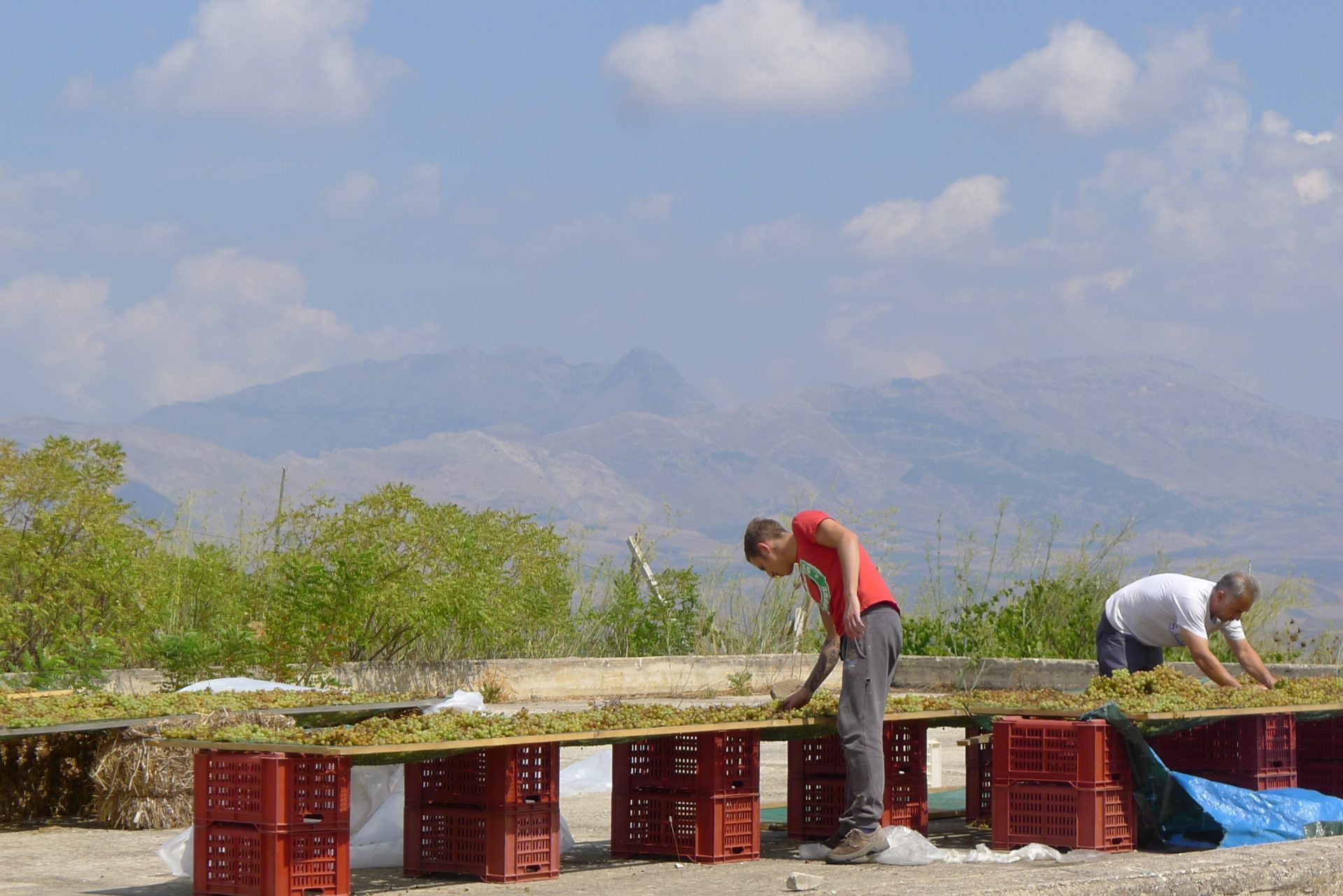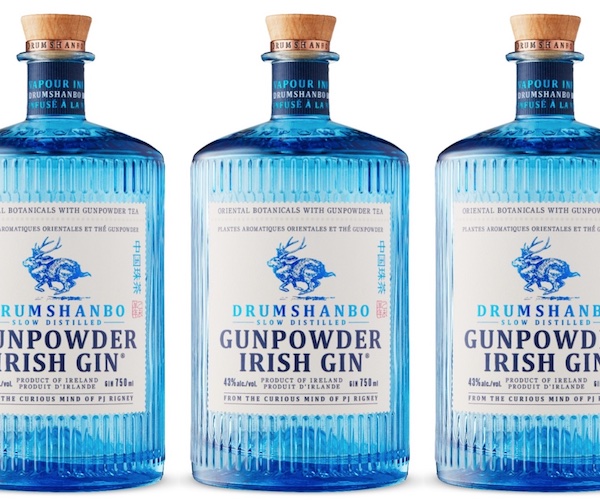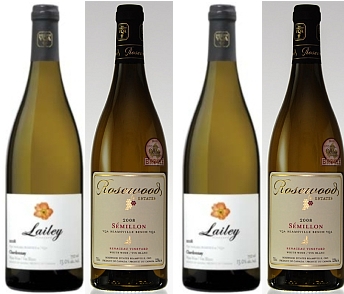Good Things Grow in Sicily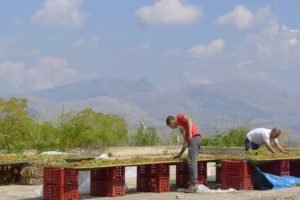
Since its founding in 1998, Sicily’s Valdibella Cooperativa has worked to increase biodiversity and native crops in the region, with the intent of revitalizing both the land and the people who farm it. Their wine portfolio is focused entirely on indigenous grapes and they produce wines that reflect the true character of each varietal and the distinct Sicilian terroir.
Cattaratto, a white grape, is cultivated in every corner of the island and for many years was used primarily in the production of Sicily’s famous fortified wine, Marsala. For Valdibella, the potential of this very expressive and aromatic grape – one that can show incredible complexity with tropical fruit, herbs, honey, almonds, floral and spice – is in finding the perfect tension between lush aromatics and balancing acidity.
Winemaking decisions are paramount to the style of the white wines from the Grillo grape: when grapes are pressed and cold fermented, the finished wines are bright with aromas and flavours of fresh-cut grass and grapefruit. Valdibella vinifies their ‘Sulle Bucce’ Grillo with skin contact to extract colour and tannin and ages it on lees for six months, creating a more full-bodied wine, warm with ripe citrus and spice.
Sicily’s many microclimates result in different aromatic properties for the very adaptable Nero d’Avola grape. For Valdibella’s ‘Kerasos’, vineyards at elevation and vinification in stainless steel results in bright cherry fruit and great acid-tannin structure. The single-vineyard ‘Respiro’, from a warmer, south-facing area, is also fermented and aged in steel, but has a richer profile with balsamic, earth and smoke. Both the ‘Sulle Bucce’ and ‘Respiro’ wines are made entirely without the use of sulphur and all of Valdibella’s wines are made as naturally as possible and with very little intervention.
Cattaratto, Grillo and Nero d’Avola have a long history in Sicily but until recently, were not well-known outside of Italy. Valdibella’s commitment to showcasing these indigenous varieties and to making wines with intention, integrity and care, reveals just how much these grapes have to offer.
Valdibella 2020 ‘Munir’ Cattaratto, Sicilia
Retail: $19.95 / btl
Valdibella 2020 ‘Sulle Bucce’ Grillo, Terre Siciliane
Retail: $26.95 / btl (6 btl/cs)
Valdibella 2019 ‘Kerasos’ Nero d’Avola, Sicilia
Retail: $21.95 / btl
Valdibella 2020 ‘Respiro’ Nero d’Avola, Sicilia
Retail: $26.95 / btl (6 btl/cs)
Click HERE to order!
The Wines
Valdibella 2020 ‘Munir’ Cattaratto, Sicilia
Straw yellow with green reflections in the glass. On the nose there are bright peach and citrus fruit notes along with fragrant wild flowers. The palate is fresh and well-structured with a long and persistent finish.
Valdibella 2020 ‘Sulle Bucce’ Grillo, Terre Siciliane
Straw yellow with golden reflections. On the nose there are flowers, citrus and aromatic herbs. The palate is warm with subtle tannins, grassy notes, spice and dried fruit, beautifully balanced by a good minerality that provides a long and complex finish.
Valdibella 2019 ‘Kerasos’ Nero d’Avola, Sicilia
Brilliant deep ruby in colour, with aromas of red and black berries – currants and raspberries – and a light balsamic note. Warm and velvety on the palate with flavours of fresh red fruit and earthy undertones. Acidity and ripe tannins provide great structure.
Valdibella 2020 ‘Respiro’ Nero d’Avola, Sicilia
An absolutely joyful expression of varietal typicity, with intense aromas of cherries followed by a rich balsamic note. The ripe fruit on the palate is complemented by herbaceous notes, fine tannins, juicy acidity and a long finish of earth and smoke.
Click HERE to order!
About Valdibella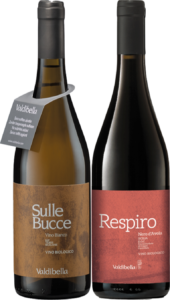
In 1998 this small co-op grew out of ‘Project Jonathan’, thanks to the Salesians of Camporeale wanting to find constructive activities for wards of the court. Members of the co-op commit to supporting the young people of the project, and help them integrate into the community.
Valdibella includes 8 grape growers with a combined 60 hectares of vineyards, producing 130,000 bottles in a typical vintage. The vineyards, overseen by Massimiliano Solano, the passionate leader behind the winery project (and current president of the co-op), are located around the towns of Camporeale & Monreale, in the province of Palermo. All vineyards — at 300–500m elevation, on leached red ‘regosuolo’, a lime and red clay mix over sedimentary soils — are certified organic; and production methods extend to minimal (sometimes zero) added sulphur, and no chemicals in cellar or vineyards. Indigenous grapes are the focus — Catarratto, Grillo, Zibibbo, Perricone, Nerello Mascalese & Nero d’Avola. Leading the ‘new wave’ of Sicilian winegrowers, Valdibella eschews overripe, high alcohol wines in favour of bright, fresh and elegant wines that express the terroir of the region.
Winemaking, in a cellar completed in 2009, embraces a non-interventionist philosophy. Increasingly, native yeasts are used for fermentation. Every year, new steps are taken to improve quality and reduce environmental impact. The charming Antonino Vilardi is winemaker.
There are now 11 additional members of the co-op, managing the business, and growing organically farmed crops; including almonds, olives, cereals, legumes, fruits and vegetables which are turned into Valdibella-branded products such as extra-virgin olive oil, almond milk, marzipan, pasta (from an ancient, indigenous strain of wheat), and more. Including 60 ha of vineyards, members farm a total of 250 ha in the region. Organic farming and biodiversity, including woodland & nature preserve, are an integral part of the philosophy. At-risk youth from the community (and further) are given the opportunity to work, both on the farms and in the production of food and wine products.
On top of being socially and environmentally conscious, Valdibella is also Mafia-free. Founded in 2004, Addio Pizzo (addio = goodbye / pizzo = protection money), is a movement supporting those in the economy who are pizzo-free. By bearing the slogan on their wines, Valdibella confirms their commitment to supporting pizzo-free business. Luigi Montalbano, co-op member and past-president, is especially determined in this, as his father, a prominent Palermo physician, was murdered by the Mafia.

